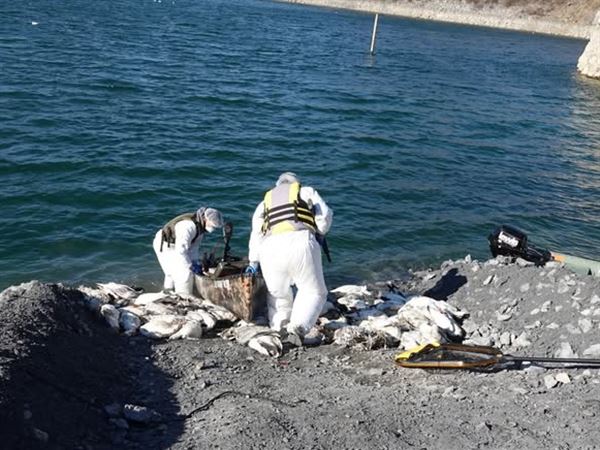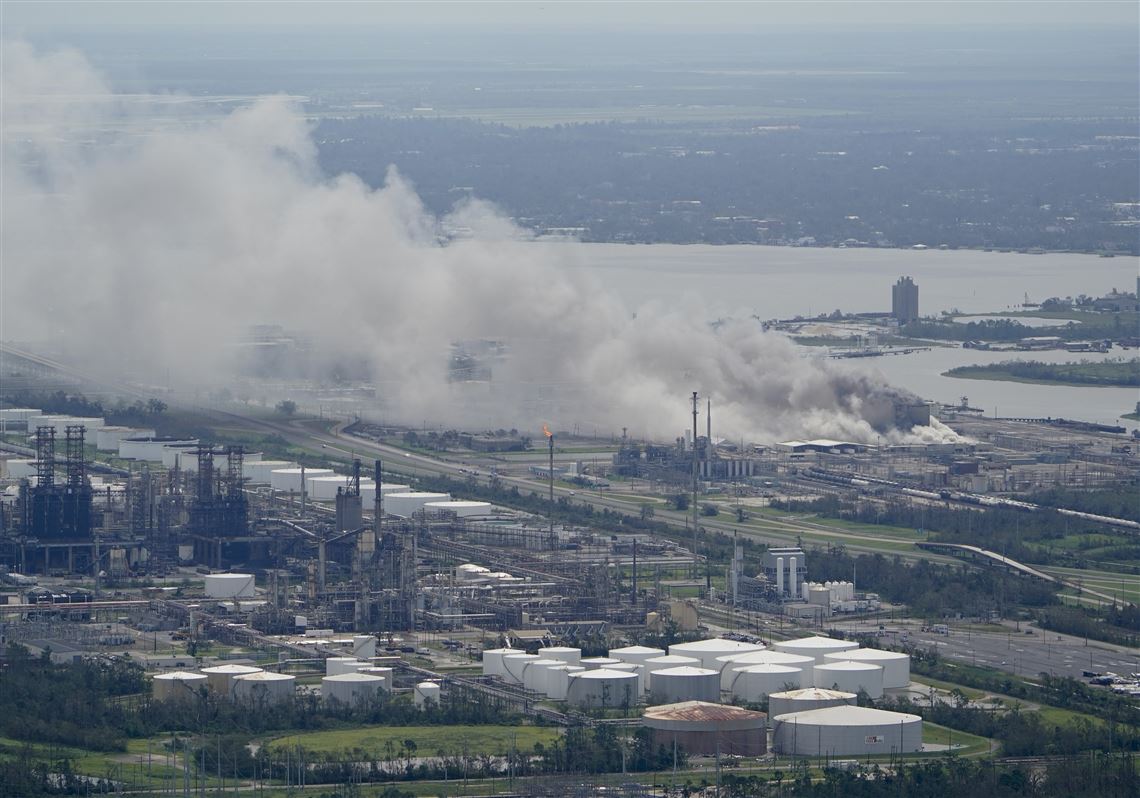WASHINGTON — The Securities and Exchange Commission moved closer Friday to a final rule that would dramatically change what public companies tell shareholders about climate change — both the risks it poses to their operations and their own contributions to the problem.
Public comment on the proposal has now closed, with more than 10,000 comments submitted since March by companies, auditors, trade groups, lawmakers, individuals and others.
Comments ranged from concerns about the costs involved for companies getting up to speed, the SEC’s authority to regulate such data and praise that the nation’s top financial regulator was moving to make mandatory the reporting of climate-risks data. If enacted, public companies in their annual reports and stock registration statements would have to report their greenhouse-gas emissions. The largest companies would also have to disclose emissions data related to their suppliers and reveal whether their climate-related risks are material to investors.
For example, the SEC’s rule would force companies to disclose in annual statements whether climate change is expected to affect more than 1% of a line item and explain how.
“That’s incredibly granular,” said Margaret Peloso, a partner at Vinson & Elkins focused on climate change risk management and environmental litigation. “It’s a lot more detailed than many other financial reporting requirements.”
Companies would also have to report on the physical impact of storms, drought and higher temperatures brought on by global warming. They would have to explain how extreme weather events affect their finances, lay out plans for reducing climate risks and outline any progress made in meeting climate-related goals.
“It’s correcting a market problem ... which is that investors don’t currently have all the information they need about climate risk in order to make their investment decisions,” said Alex Thornton, senior director of tax policy at the Center for American Progress.
But Republicans who oppose the SEC’s measure insist climate disclosures should remain voluntary. In May, a group of Republican governors including Texas Gov. Greg Abbott and Arizona’s Doug Ducey wrote that the rule “forces investors to view companies through the eyes of a vocal set of stakeholders,” and added that it would unduly penalize oil and gas companies.
In a March statement, the U.S. Chamber of Commerce called the proposal overly prescriptive, saying that as written, the rule would “limit companies’ ability to provide information that shareholders and stakeholders find meaningful.”
Auditing firms, trade groups and some lawmakers have repeatedly pointed to the proposal’s inclusion of companies’ indirect effects on the climate — known as Scope 3 emissions — as a thorny area to report on. Attorneys and auditors say the information could be difficult to obtain for companies with international suppliers or suppliers that are private companies.
“One of the biggest concerns about requiring Scope 3 emissions is the fact that the data is not controlled or possessed by the disclosing company,” the Bipartisan Policy Center said. It added that the SEC gave “scant reasons for how the benefits of requiring its disclosure outweigh what will likely be an extraordinarily costly process.”
But proponents say having detailed information on indirect emissions is critical to understanding how companies affect the climate.
Many public companies already release data on their emissions, as investor interest for such information has risen in recent years. The SEC issued voluntary guidance in 2010 for how companies can report information about climate change. In 2020, more than 90% of S&P 500 companies published sustainability reports, according to the Governance and Accountability Institute.
The SEC’s climate disclosure rule would standardize what public companies report. It would also require them to seek independent certification for some reporting, which would provide investors with much more reliable information than what’s currently disclosed, environmental attorneys, auditors and climate-data software companies say.
“There’s a mega trend of demand for this information,” said Tim Mohin, chief sustainability officer of Persefoni, a startup that uses artificial intelligence for carbon accounting. Yet current emissions data that companies report through a patchwork of disclosures is not uniform in quality or timeliness, he said.
“The SEC rule is a major cleanup action,” Mr. Mohin said. He previously worked in the Environmental Protection Agency and Senate on environmental policy.
Climate activists, sustainable finance proponents and investors have long advocated for mandatory emissions reporting required of all companies. Once finalized, the U.S. would join a growing number of countries including the U.K. and Japan that are requiring large companies to disclose such information. The European Union is finalizing its reporting standards.
But the SEC’s proposed rule is far from certain. Opponents, including conservative trade groups, Republican lawmakers and others have questioned whether regulating emissions-related data falls under the SEC’s purview. As a result, attorneys say any finalized rule would almost certainly be challenged in court on the question of the commission’s jurisdiction.
The SEC estimates staying compliant with the new rule will cost an additional $420,000 a year on average for small public companies and $530,000 a year for larger ones. But costs will vary based on how much companies are already disclosing and factors like how much of the accounting can be done in-house, experts say.
Supporters of the rule hope mandated emissions disclosures will force companies to reduce their climate impacts and guide investors away from companies that do not take steps to reduce their emissions. But some commenters have questioned whether investors would be able to make sense of the volume of information being asked.
The accounting firm Deloitte said the level of detail asked in financial disclosures “may risk confusion among investors.” But it praised the commission for having based the proposal on the Task Force on Climate-Related Financial Disclosures, a group established by G-20 countries to standardize climate-related financial reporting.
First Published: June 18, 2022, 10:00 a.m.
















